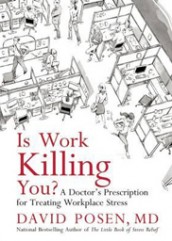 JOSH LINKNER
JOSH LINKNER
Why the Best Leaders Embrace the Worst Ideas
Award-winning entrepreneur and creativity expert Josh Linkner wrote a recent piece for Forbes.com on why it’s important to welcome ideas from anyone–at all levels–in your company:
Modern leadership technique models all point to an “open door†style. With this practice, employees have the ability to approach their leader with questions at any time. This philosophy of openness makes perfect sense, but it doesn’t go far enough. The door should be open not only for questions, but also for ideas – even if that means an influx of terrible ones.
Whether it’s in a pop-in, impromptu chat or in a team brainstorming session or a formal board meeting, you (as a leader) should encourage people to bring forward their ideas – and then, you should embrace what they suggest… even if it’s awful.


 DONALD COOPER
DONALD COOPER
